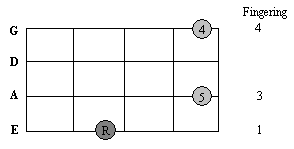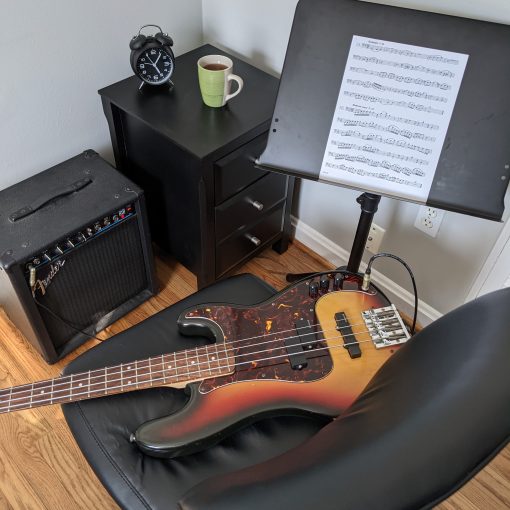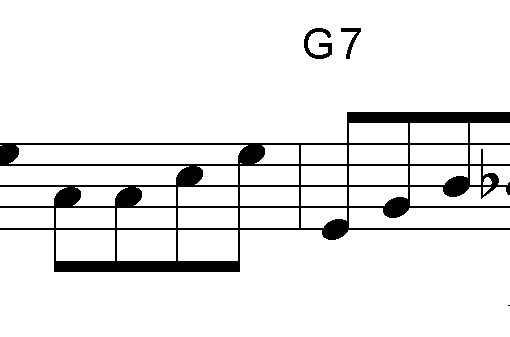Level: beginner
No part of this lesson may be copied, reproduced, or distributed in any form without consent of the author. Copyright © Doug Ross, all rights reserved.
Ear training…..the most dreaded two words in all of music instruction. Yes, sooner or later, you’re going to have to do some interval training if you want to master your instrument. In fact, I would say that after good time feel, strong pitch recognition is perhaps the next most important asset for a bassist to have.
The problem is that this in an intangible skill. We bass players are very comfortable dealing with fingerings and patterns that we can see on the neck or on paper, but ear training is all in your head. I suggest starting simple by learning to associate the sound of major scale intervals with familiar tunes. It is extremely helpful to sing or whistle these intervals as you practice, to make sure you are really hearing the pitch relationships in your mind, not just relying on your eyes and fingerboard. You don’t have to be a great singer, but you’ll have to practice a little bit to gain some control over your voice.
Here are some recommended tunes to use as mnemonic clues for singing both ascending and descending intervals within the scale. Unless otherwise indicated, the first two notes of the melody form the indicated interval, and you should practice singing the tune first (in any comfortable key for your voice), then check with your bass to see if you sang it correctly.
Ascending Major 2nd = You Are the Sunshine of My Life (Stevie Wonder) 3rd and 4th notes of melody
Ascending Major 3rd = Seinfeld theme 2nd and 3rd notes of bass line
Ascending Perfect 4th = Here Comes the Bride
Ascending Perfect 5th = Blackbird (Beatles) “…dead of”
Ascending Major 6th = My Way
Ascending Major 7th = Misty 6th and 7th notes of melody
Ascending Perfect Octave = Over the Rainbow
Descending Major 2nd = Yesterday
Descending Major 3rd = My Girl 3rd and 4th notes of melody
Descending Perfect 4th = Born Free movie theme
Descending Perfect 5th = Flintstones theme
Descending Major 6th = Over There (WWI marching song)
Descending Major 7th = I Love You (Cole Porter) 2nd and 3rd notes of melody
Descending Perfect Octave = Willow Weep for Me
The larger intervals (5ths, 6ths, and 7ths) are the hardest for most people to hear at first. Big intervals are also hard to sing, so there are relatively few songs that begin with these intervals. I selected the above songs because they are very familiar to me, and easy to recall. You can choose different songs if there are others that you know better. Often, the most effective mnemonics are corny old tunes, video game theme songs, nursery rhymes, etc. Be patient, and keep working at it a little every day until you can sing them all consistently. Then the next step would be to learn intervals outside the major scale in the same way.



